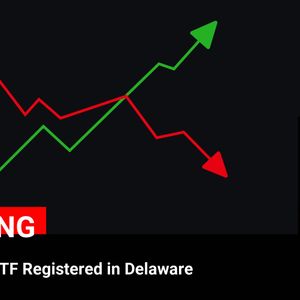Lummis also criticized the US Marshals Service's plans to sell seized Bitcoin, and advocated instead for a national Bitcoin reserve to boost strategic financial security. Meanwhile, President-elect Donald Trump is preparing to prioritize cryptocurrency through an executive order, with proposed measures to support the industry, ease regulatory pressures, and establish a government-held Bitcoin reserve. His anticipated Treasury secretary nominee, Scott Bessent, also recently rejected the need for a US central bank digital currency. Sen. Lummis Warns FDIC Over Alleged Document Destruction Wyoming Senator Cynthia Lummis raised some serious concerns regarding the Federal Deposit Insurance Corporation (FDIC), and alleged that the agency destroyed documents linked to Operation Chokepoint 2.0. According to whistleblower accounts shared with the senator, the FDIC may have eliminated key records related to its oversight of digital asset activities, including the supervision of Signature Bank and the liquidation of Silvergate Bank . In a letter to the FDIC, Lummis directed the agency to immediately stop any destruction of records and preserve all materials related to these activities. She also warned that any confirmed efforts to obstruct Senate oversight by knowingly destroying documents will result in criminal referrals to the Department of Justice. Operation Chokepoint 2.0 is reportedly a coordinated initiative to sever banking services for crypto-related firms. It caused widespread disruption across the digital asset industry and became a flashpoint for debate during the 2024 US elections as well. This initiative also shed some light in the longstanding concerns in the crypto community about financial targeting. Meanwhile, some well known crypto executives, including Andreessen Horowitz co-founder Marc Andreessen, Frax Finance founder Sam Kazemian, and Coinbase CEO Brian Armstrong, recently spoke out about their experiences with financial debanking . After an appearance by Andreessen on The Joe Rogan Experience, over 30 crypto founders took to social media to share their own challenges in maintaining access to banking services. Armstrong, in particular, pursued transparency by filing a Freedom of Information Act request to uncover communications sent by the FDIC in 2022 advising banks to pause crypto-related activities. The heavily redacted responses he received led US District Judge Ana Reyes to order the FDIC to provide more transparent records, and criticised the agency’s lack of good-faith effort. Despite intense regulatory scrutiny and financial hurdles, the crypto industry has shown resilience. Many firms pivoted to stablecoins as a means of keeping operations going, particularly after losing access to traditional banking services during the debanking initiative. Lummis Criticizes US Bitcoin Sale Plans Senator Lummis had quite a busy week as she also demanded answers from the United States Marshals Service about the potential sale of 69,370 Bitcoin that were seized during the Silk Road asset forfeiture. In a letter sent on Jan. 15, Lummis criticized the decision, and even called it an act of political spite due to its conflict with the incoming administration’s plans to establish a National Bitcoin Stockpile. She is particularly concerned about the timing of the sale during the presidential transition period, and argued that it contradicts stated policy objectives. The sale was approved after Judge Richard Seeborg denied a petition to block the forfeiture, though further approvals are required to finalize the process. The move to sell the seized Bitcoin stands at odds with the growing interest in creating a strategic Bitcoin reserve in the United States. Senator Lummis has been a very vocal proponent of this concept, and previously suggested that the US Treasury convert some gold holdings into Bitcoin to avoid short-term impacts on the government’s balance sheet. Proposals for these reserves gained a lot of traction globally, although cryptocurrencies as an asset class still face stiff political resistance. Fidelity Digital Assets analyst Matt Hogan recently predicted that central banks, sovereign wealth funds, and nation-states could begin diversifying into Bitcoin as its strategic importance becomes more evident. Hogan believes that the risk of not holding Bitcoin may soon outweigh its perceived volatility, which could lead to quiet accumulation by sovereign powers. This sentiment is echoed by a number of industry leaders, with analysts predicting that a US Bitcoin reserve could drive the cryptocurrency’s value to $1 million per coin. Legendary cypherpunk Adam Back suggested that a move like this during the current market cycle could push Bitcoin to seven-figure valuations, particularly after Donald Trump’s electoral victory and the renewed focus on US financial strategies. Trump Plans Crypto Executive Order on Day One? US President-elect Donald Trump is reportedly preparing to designate cryptocurrency as a national priority through an executive order that is expected to be signed as soon as his first day back in office on Jan. 20. According to Bloomberg , the order may direct regulatory agencies to collaborate with the crypto industry and establish a crypto council to advocate for the sector’s policy interests. While the executive order’s contents are not finalized, the plan delivers on Trump’s campaign promises to position the US as a “crypto capital.” Discussions surrounding the potential executive order included input from crypto executives, including conversations with Trump’s crypto czar, David Sacks. Reports from The Washington Post suggest that additional executive orders on Jan. 20 could address crypto de-banking issues and repeal policies requiring banks to classify digital assets as liabilities. Other measures under consideration include directing government agencies to review crypto policies, freezing crypto-related litigation, and establishing a government-held Bitcoin reserve using assets seized from criminal investigations. Reuters reported that Trump’s administration may direct the Securities and Exchange Commission (SEC) to pause or review its crypto-related cases to focus only on those with fraud allegations. This fueled speculation among industry lawyers that the SEC’s aggressive stance against crypto firms, including its lawsuit against Ripple Labs, could change under the new administration. Ripple’s chief legal officer, Stuart Alderoty , is very optimistic that the case might be abandoned. The concept of a national Bitcoin reserve also gained some traction among crypto advocates, who argue it could serve as an inflation hedge and alleviate national debt. Data from Arkham Intelligence reveals that the US currently holds approximately $20.3 billion worth of cryptocurrencies seized from criminal investigations, including $19.8 billion in Bitcoin. Senator Cynthia Lummis proposed legislation for the Treasury to buy 1 million BTC , which would cost at least $100 billion at current market prices. Treasury Nominee Scott Bessent Rejects US CBDC Scott Bessent, President-elect Donald Trump’s anticipated nominee for Treasury secretary, addressed the US Senate Committee on Finance on Jan. 16, and shared his stance on financial issues, including central bank digital currencies (CBDCs). When questioned by Senator Marsha Blackburn about the potential development of a digital dollar, Bessent dismissed the need for a US CBDC by arguing that such systems are more relevant for countries lacking diverse investment options. Scott Bessent (Source: US Senate Committee on Finance ) Bessent’s nomination is still unofficial, as Trump is set to take office on Jan. 20. As a former partner at Soros Fund Management and a Trump campaign donor, Bessent expressed his support for the US government’s efforts to encourage growth in the crypto industry, which aligns with Trump’s campaign promises to reject CBDCs. The issue of a digital dollar sparked debate in the past as well. In 2022, President Joe Biden directed the Treasury to explore CBDC development to promote financial inclusion, but Republicans criticized the initiative for its potential threats to financial privacy and national security. Trump also previously vowed to block the creation of a CBDC during his presidency, which was reinforced by the Republican-led House passing the CBDC Anti-Surveillance State Act in 2024.















